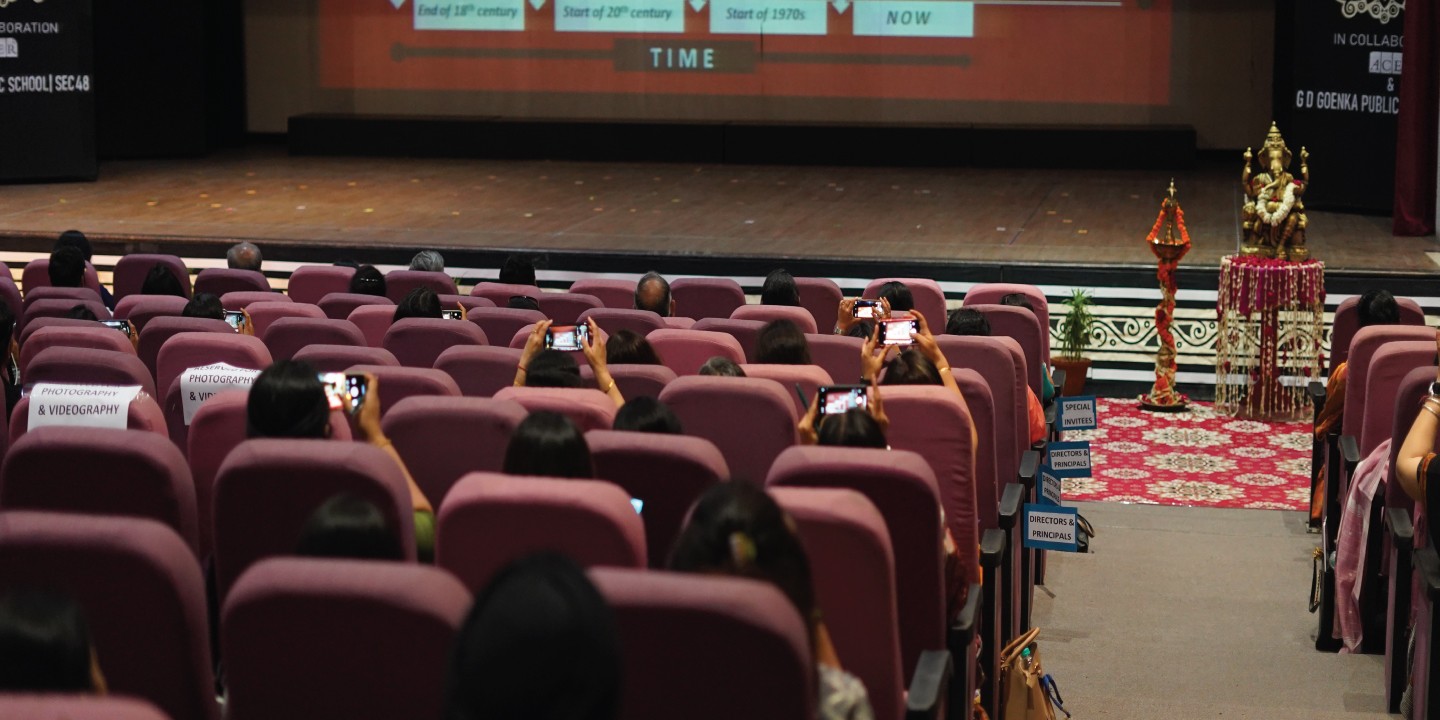
School leaders’ event on competency-based assessments
ACER news 22 May 2023 5 minute readACER India’s recent event on competency-based assessments at GD Goenka Public School was a successful gathering of 90 School Directors and Principals from Delhi and surrounding regions.
On 29 April, Australian Council for Educational Research (ACER), a global leader in educational research and assessment, collaborated with GD Goenka Public School in Sector 48, Gurgaon to drive a conversation on developing, administering and reporting assessments that measure student competencies in contrast to their rote learning abilities.
Several themes emerged from the conference.
Collaboration sparks action
In the welcome address, Dr Anuradha Handa, Principal, GD Goenka Public School, Sector 48, cited Alexandra Graham Bell’s quote − ‘Great discoveries and improvements invariably involve the cooperation of many minds’.
‘Today is such a day where educators who work for the cause of education are all here. We are here to learn, we are here to collaborate, [and] we are here to bring to reality the vision of [National Education Policy] NEP 2020. And give the best to our children. And such days are definitely meant to create history,’ Dr Handa said.
Transforming assessments to promote learning
Her address was followed by a presentation from Dr Priyanka Sharma, Director, Research, ACER India. She discussed transforming assessments in next generation learning systems, including:
- challenges in assessment
- components of next-generation learning systems
- how assessment is at the centre of a learning system.
Dr Sharma explained that there are two key components in the learning system. The first is the learning outcomes that the learning systems want to achieve; the second is the social, economic and pollical constraints that affect learning. And, she cautioned, such constraints are likely to remain in the future.
‘Assessment is the main driver of what we want to achieve, that is, learning outcomes. Assessments help to understand what has been achieved, what are the learning gaps, and what can be done with assessments results to improve teaching and learning.’
She added that transformation is possible only when teachers use assessment evidence to modify teaching and learning, and policy makers use assessment data to make policy decisions. However, for that to happen, a critical change is required in assessment results reporting and communication, among other more technical changes in test construction. Assessment reporting should change from providing simple grades and numbers to meaningful qualitative descriptions.
Bridging gaps between education and employability
Dr Atul Bhatnagar, Former Chief Operations Officer of National Skill Development Corporation explored whether skilling should be a religion in India.
‘The feedback from the industry is that graduates do not have the skills to be employable. What is happening here is…we can see a lot of marks being talked about but not soft skills and core skills,’ Dr Bhatnagar said.
He added, ‘Lifelong learning has to continue. We cannot rest on our degrees alone...Eventually, we will have to be either wage-employed or self-employed, and therefore we have to be aligned with what the industry wants’.
Dr Bhatnagar emphasised that assessments must assess those skills, for example, creativity. He told teachers in the meeting that he advises students, ‘Don’t think about what you want to be, think about the skills you’ll need to know, and how you’ll learn them’.
International Benchmark Tests: A game changer
In the subsequent session, Ashtamurthy Killimangalam, Research Fellow, ACER India delivered a presentation on competency-based assessments. In his presentation, he spoke in-depth about ACER’s flagship assessment, International Benchmark Tests (IBT). IBT is a world class competency-based assessment for schools to track student performance against national and international standards.
Mr Killimangalam discussed the various IBT reports and how they can be used to support the next steps in teaching and learning. The online tests in English, mathematics, science, and reasoning are suitable for grades 3 to 10 for schools from any school board.
The event provided opportunities for attendees to connect with experts and fellow school leaders with a common interest in assessments. They interacted on re-engineering assessments for measuring student competencies, considering the recommendations of the National Education Policy 2020.
To learn how ACER can support your assessment programs, contact: sales.india@acer.org
